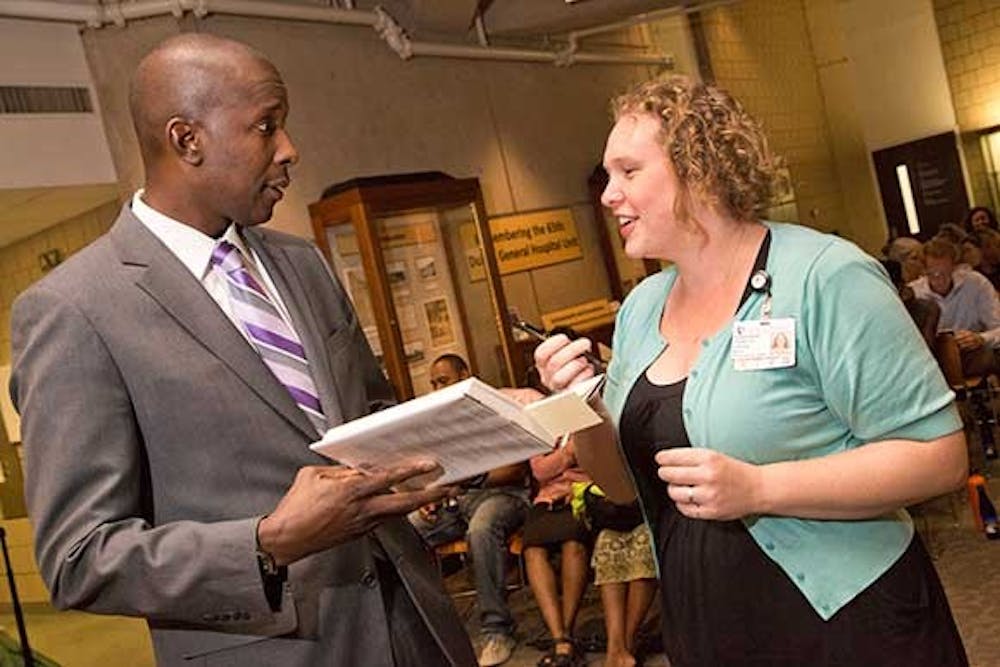President Richard Brodhead and Dr. Damon Tweedy, psychiatrist and assistant professor of psychiatry and behavioral sciences at the School of Medicine, exchanged thoughts on the intersection of race and patient care at a public discussion Thursday afternoon at Rubenstein Library.
Tweedy—a School of Medicine graduate who recently published a medical memoir titled “Black Man in a White Coat: A Doctor's Reflections on Race and Medicine”—discussed the issues raised in his book in the interview with Brodhead. He spoke about his path to overcoming challenges that arose from his race and how it affected him as a medical student and physician.
One of the first challenges Tweedy faced was dealing with the stereotypes he experienced at Duke as a black medical student. Tweedy recalled a time during his first month of medical school when a professor asked him, “Are you here to fix the lights?” after spotting Tweedy entering the professor's classroom. Tweedy said that this was one of many incidents that made him uneasy after coming to the University.
“I was pretty insecure coming to a place like Duke," he said. "I come from a great family but, you know, just didn’t have too much in the way of formal education.”
Tweedy said that after this initial incident, he realized that excelling academically would help him counter the stereotypes he faced.
“The only way I could sort of prove that I belonged was to excel [and] I ended up getting the second-highest grade in the class on the final exam," Tweedy said.
As he moved through rotations and residency, Tweedy handled patient prejudices by showing their inaccuracies. He mentioned an interaction with a patient who initially refused to be seen by a black physician, but whom he ended up building a connection with. Brodhead commended Tweedy’s ability to move past prejudice, despite its inevitability, and discussed the importance of forming long-term physician-patient relationships to move past stereotypes in medicine.
“Prejudice is part of the human equipment, so it’s not amazing to run into it,” Brodhead said. "You’ve got to work in the world that’s there, but [Tweedy] seems to hint that there’s a way of practicing medicine where you’re able to get beyond the prejudices that things start with.”
In addition to discussing the prejudices he faced as a black doctor, Tweedy also talked about the role of race in the patient experience. He highlighted the fact that several health issues, such as hypertension and diabetes, are compounded by racial issues in America. Tweedy heard the refrain, "this disease is more common in black people,” over and over again in medical school, and discussed how being a black physician whom black patients look up to was both a "blessing and a burden."
Junior Azeb Yirga enjoyed the talk and said that Tweedy’s insight gave her a lot to reflect on as she moves through medical school in the future.
"I thought Dr. Tweedy’s talk was remarkable,” Yirga said. “He talked about whether black doctors have a special responsibility, and that’s something that I think about a lot as a black pre-med student. So it was wonderful to hear his reflection.”
Get The Chronicle straight to your inbox
Signup for our weekly newsletter. Cancel at any time.

